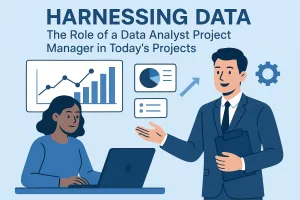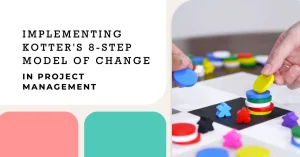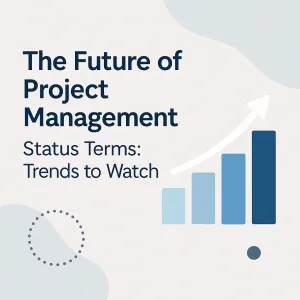Introduction: The Value of PMP Certification
In the dynamic field of project management, the Project Management Professional (PMP) certification stands as a hallmark of excellence and expertise. Administered by the Project Management Institute (PMI), the PMP certification is designed to validate a project manager’s skills, knowledge, and experience in leading and directing projects. This globally recognized credential not only enhances a professional’s credibility but also opens doors to numerous career opportunities and advancements.
Brief Overview of What PMP Certification Is
The PMP certification is a rigorous credential that requires candidates to demonstrate a comprehensive understanding of project management principles and practices. To qualify, candidates must meet specific educational and professional experience requirements, including leading and directing projects. The certification process involves passing a challenging exam that covers various domains of project management, such as initiating, planning, executing, monitoring, and closing projects. This certification is not just a testament to one’s knowledge but also signifies a commitment to the profession and adherence to PMI’s code of ethics.
Importance of PMP Certification in the Project Management Field
The significance of PMP certification cannot be overstated. It serves as a benchmark for project management excellence and is often a prerequisite for many project management roles. Here are some key reasons why PMP certification is highly valued:
- Enhanced Career Opportunities: Many organizations prefer or require PMP certification for project management positions, making it a critical asset for career advancement.
- Increased Earning Potential: Studies have shown that PMP-certified professionals tend to earn higher salaries compared to their non-certified counterparts, reflecting the value that employers place on this credential.
- Global Recognition: PMP certification is recognized worldwide, allowing professionals to work in various industries and geographical locations, thus broadening their career prospects.
- Networking Opportunities: Being part of the PMI community provides access to a vast network of professionals, resources, and events that can foster career growth and development.
Transition to the Need for Ongoing Education Post-Certification
While obtaining PMP certification is a significant achievement, it is essential to recognize that learning does not stop there. The project management field is continually evolving, with new methodologies, tools, and best practices emerging regularly. Therefore, ongoing education and skill development are crucial for maintaining relevance and effectiveness in this competitive landscape.
Engaging in continuous learning post-certification not only helps professionals stay updated with industry trends but also enhances their ability to manage complex projects successfully. This commitment to lifelong learning can take various forms, including attending workshops, pursuing additional certifications, participating in webinars, and joining professional organizations. By investing in their education, PMP-certified professionals can ensure they remain at the forefront of the project management field, ready to tackle new challenges and seize opportunities as they arise.
While PMP certification is a valuable asset, the journey of professional development should continue beyond certification. Embracing continuous learning is key to staying ahead of the curve in the ever-evolving world of project management.
Why Continuous Learning Matters
In the dynamic field of project management, obtaining a Project Management Professional (PMP) certification is a significant achievement that validates your skills and knowledge. However, the journey does not end there. Continuous learning is essential for recently certified PMP professionals to stay relevant and excel in their careers. Here are several key reasons why ongoing education and skill development are crucial in project management:
- Adapting to Industry Changes: Project management is constantly evolving due to shifts in methodologies, regulations, and best practices. Continuous learning helps professionals keep pace with these changes, ensuring they are equipped with the latest tools and techniques. This adaptability is vital for managing projects effectively in an ever-changing environment.
- Embracing Technological Advancements: Technology plays a pivotal role in modern project management. From project management software to data analytics and artificial intelligence, staying updated on technological advancements can significantly enhance project outcomes. Continuous education allows PMP professionals to leverage new technologies, improving efficiency and effectiveness in their projects.
- Enhancing Career Growth: The pursuit of knowledge does not only benefit project execution but also opens doors for career advancement. By engaging in continuous learning, PMP professionals can develop new competencies, making them more competitive in the job market. This commitment to personal and professional growth can lead to leadership opportunities and higher-level project management roles.
- Networking and Collaboration: Participating in workshops, seminars, and online courses provides opportunities to connect with other professionals in the field. Networking can lead to collaborations, mentorships, and sharing of best practices, which are invaluable for personal development and project success.
- Staying Motivated and Engaged: Continuous learning fosters a growth mindset, encouraging professionals to seek new challenges and remain engaged in their work. This motivation can lead to increased job satisfaction and a more fulfilling career in project management.
While achieving PMP certification is a commendable milestone, the commitment to continuous learning is what truly sets successful project managers apart. By embracing ongoing education, PMP professionals can navigate the complexities of their roles, adapt to industry changes, and drive their careers forward.
Identifying Areas for Further Development
Achieving a Project Management Professional (PMP) certification is a significant milestone in a project manager’s career, but it is just the beginning of a lifelong journey of learning and professional growth. It is crucial for recently certified PMP professionals to identify areas for further development to stay competitive and effective in their roles. Here are some key points to consider:
Key Project Management Skills
- Leadership: Effective leadership is essential for guiding teams and ensuring project success. Post-certification, project managers should focus on enhancing their leadership skills, including emotional intelligence, decision-making, and conflict resolution. These skills help in motivating teams and navigating complex project dynamics.
- Communication: Strong communication skills are vital for project managers to convey ideas clearly and foster collaboration among stakeholders. Continuous improvement in verbal and written communication can lead to better stakeholder engagement and project outcomes.
- Risk Management: Understanding and managing risks is a core component of project management. Professionals should seek to deepen their knowledge of risk assessment techniques and develop strategies for mitigating potential issues. This can involve learning about advanced risk management frameworks and tools.
Emerging Trends in Project Management
- Agile Methodologies: The shift towards Agile project management is transforming how projects are executed. Familiarizing oneself with Agile principles, frameworks (like Scrum and Kanban), and tools can enhance a project manager’s ability to lead adaptive and flexible projects.
- Digital Transformation: As organizations increasingly adopt digital technologies, project managers must understand how to leverage these tools effectively. This includes learning about project management software, data analytics, and digital collaboration platforms that can streamline project processes.
- Sustainability and Social Responsibility: With a growing emphasis on sustainability, project managers should consider how to integrate sustainable practices into their projects. This involves understanding environmental impacts and developing strategies that align with corporate social responsibility goals.
Self-Assessment Tools for Identifying Personal Development Areas
To effectively identify areas for further development, project managers can utilize various self-assessment tools:
- 360-Degree Feedback: This tool gathers feedback from peers, supervisors, and team members, providing a comprehensive view of one’s strengths and areas for improvement. It can highlight specific skills that may need enhancement.
- Personal Development Plans (PDPs): Creating a PDP allows project managers to set specific, measurable goals for their professional growth. This structured approach helps in tracking progress and ensuring accountability.
- Skill Gap Analysis: Conducting a skill gap analysis can help identify discrepancies between current skills and those required for future roles or projects. This analysis can guide targeted learning efforts.
By focusing on these key areas, recently certified PMP professionals can ensure they remain relevant and effective in their roles. Continuous learning and skill development not only enhance individual capabilities but also contribute to the overall success of their projects and organizations.
Resources for Ongoing Education
Achieving your Project Management Professional (PMP) certification is a significant milestone, but the journey of learning and professional development doesn’t end there. To stay competitive and effective in the ever-evolving field of project management, it’s essential to engage in continuous education. Here are some valuable resources to help you enhance your skills and knowledge post-PMP certification:
1. Professional Organizations and Communities
- Project Management Institute (PMI): As the leading professional association for project managers, PMI offers a wealth of resources, including access to research papers, industry standards, and networking opportunities. Joining PMI can also provide you with discounts on events and educational materials.
- Local PMI Chapters: Engaging with your local PMI chapter can facilitate networking with other project management professionals. These chapters often host events, workshops, and seminars that can deepen your understanding of current trends and best practices in project management.
- Networking Opportunities: Participating in professional organizations allows you to connect with peers, share experiences, and learn from others in the field. Networking can lead to mentorship opportunities and collaborations that enhance your career.
2. Online Courses and Certifications
- Coursera: This platform offers a variety of courses from top universities and organizations, covering advanced project management topics, agile methodologies, and leadership skills. Many courses also provide certificates that can enhance your resume.
- Udemy: With a vast library of project management courses, Udemy allows you to learn at your own pace. You can find courses tailored to specific areas of project management, such as risk management, stakeholder engagement, and project scheduling.
- LinkedIn Learning: This platform provides access to a wide range of video tutorials and courses on project management. Subscribing to LinkedIn Learning can also help you stay updated with the latest tools and techniques in the industry.
3. Books, Webinars, and Podcasts
- Books: Reading is a powerful way to deepen your knowledge. Consider exploring titles that focus on advanced project management strategies, leadership, and emerging trends in the field. Books by recognized authors can provide insights that are not covered in standard courses.
- Webinars: Many professional organizations and educational platforms offer free or low-cost webinars on various project management topics. These sessions often feature industry experts who share their experiences and insights, making them a valuable resource for ongoing education.
- Podcasts: Listening to project management podcasts can be an excellent way to learn while on the go. Many podcasts feature interviews with experienced project managers and discussions on current challenges and innovations in the field.
By leveraging these resources, recently certified PMP professionals can continue to grow their expertise, adapt to new challenges, and maintain a competitive edge project management. Continuous learning not only enhances your skills but also enriches your professional network and opens doors to new opportunities.
Networking and Learning from Peers
Obtaining a Project Management Professional (PMP) certification is a significant achievement that opens doors to numerous opportunities. However, the journey does not end with certification; rather, it marks the beginning of a continuous learning process. Engaging with a community of fellow project managers can greatly enhance your skills and knowledge. Here are some key points highlighting the importance of networking and learning from peers after achieving your PMP certification:
- Benefits of Joining Project Management Forums and Groups:
- Participating in project management forums and professional groups provides a platform for sharing insights, discussing challenges, and exploring best practices. These communities often host webinars, workshops, and discussions that can keep you updated on the latest trends and methodologies in project management. Engaging with these groups can also help you build a professional network that may lead to new job opportunities or collaborations.
- Sharing Experiences and Lessons Learned with Fellow PMPs:
- One of the most valuable aspects of being part of a project management community is the opportunity to share experiences. Discussing real-world challenges and solutions with fellow PMPs can provide new perspectives and innovative approaches to common problems. This exchange of knowledge not only enhances your understanding but also fosters a culture of continuous improvement within the profession.
- Mentorship Opportunities: Finding a Mentor or Becoming One:
- Mentorship plays a crucial role in professional development. As a newly certified PMP, seeking out a mentor can provide guidance and support as you navigate your career. A mentor can offer valuable insights based on their experiences, helping you avoid common pitfalls and accelerate your growth. Conversely, as you gain experience, consider giving back by mentoring others. This not only reinforces your own knowledge but also strengthens the project management community as a whole.
Conclusion: Embracing Lifelong Learning
Achieving a Project Management Professional (PMP) certification is a significant milestone in a project manager’s career, but it is just the beginning of a lifelong journey of learning and professional development. Staying ahead of the curve requires a commitment to continuous education. Here are some key benefits of ongoing learning after obtaining your PMP certification:
- Adaptation to Industry Changes: The project management field is dynamic, with new methodologies, tools, and technologies emerging regularly. Continuous learning helps you stay updated on these changes, ensuring that your skills remain relevant and competitive in the job market.
- Enhanced Skill Set: Engaging in further education allows you to deepen your expertise in specific areas of project management, such as Agile methodologies, risk management, or stakeholder engagement. This not only enhances your capabilities but also increases your value to employers.
- Networking Opportunities: Participating in workshops, seminars, and online courses provides opportunities to connect with other professionals in the field. Building a strong network can lead to new job opportunities, collaborations, and insights into best practices.
- Personal Growth: Lifelong learning fosters personal development, boosting your confidence and problem-solving abilities. It encourages a growth mindset, which is essential for navigating the complexities of project management.
To take proactive steps towards your ongoing development, consider the following actions:
- Set Learning Goals: Identify specific areas you want to improve or new skills you wish to acquire. Setting clear, achievable goals will help you stay focused and motivated.
- Explore Certification Programs: Look into additional certifications that complement your PMP, such as Agile Certified Practitioner (PMI-ACP) or Certified ScrumMaster (CSM). These can broaden your expertise and open new career paths.
- Engage with Professional Communities: Join project management organizations or online forums where you can share experiences, ask questions, and learn from others in the field.
- Commit to Regular Learning: Dedicate time each month to read industry-related books, attend webinars, or enroll in courses. Consistency is key to making continuous learning a habit.
Find out more about Shaun Stoltz https://www.shaunstoltz.com/about/.
This post was written by an AI and reviewed/edited by a human.



